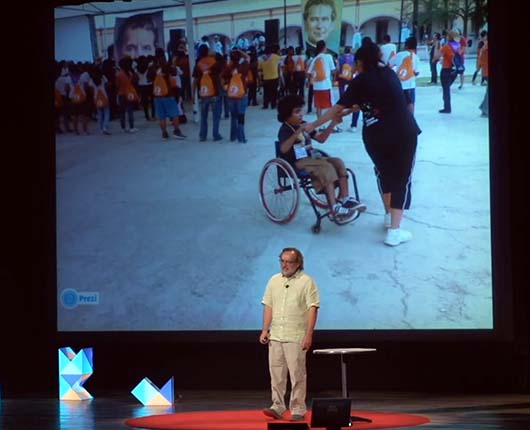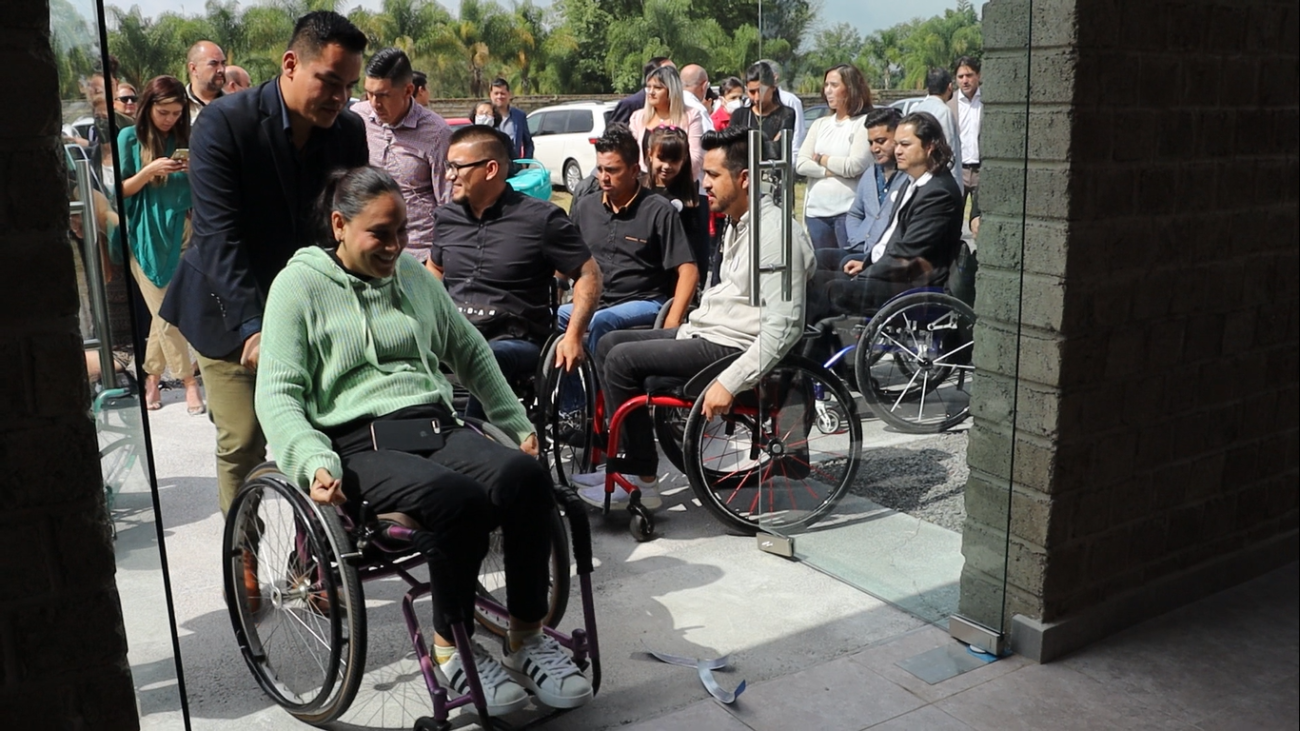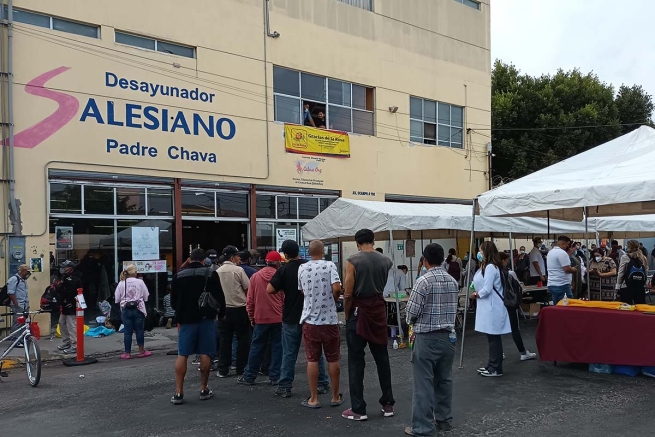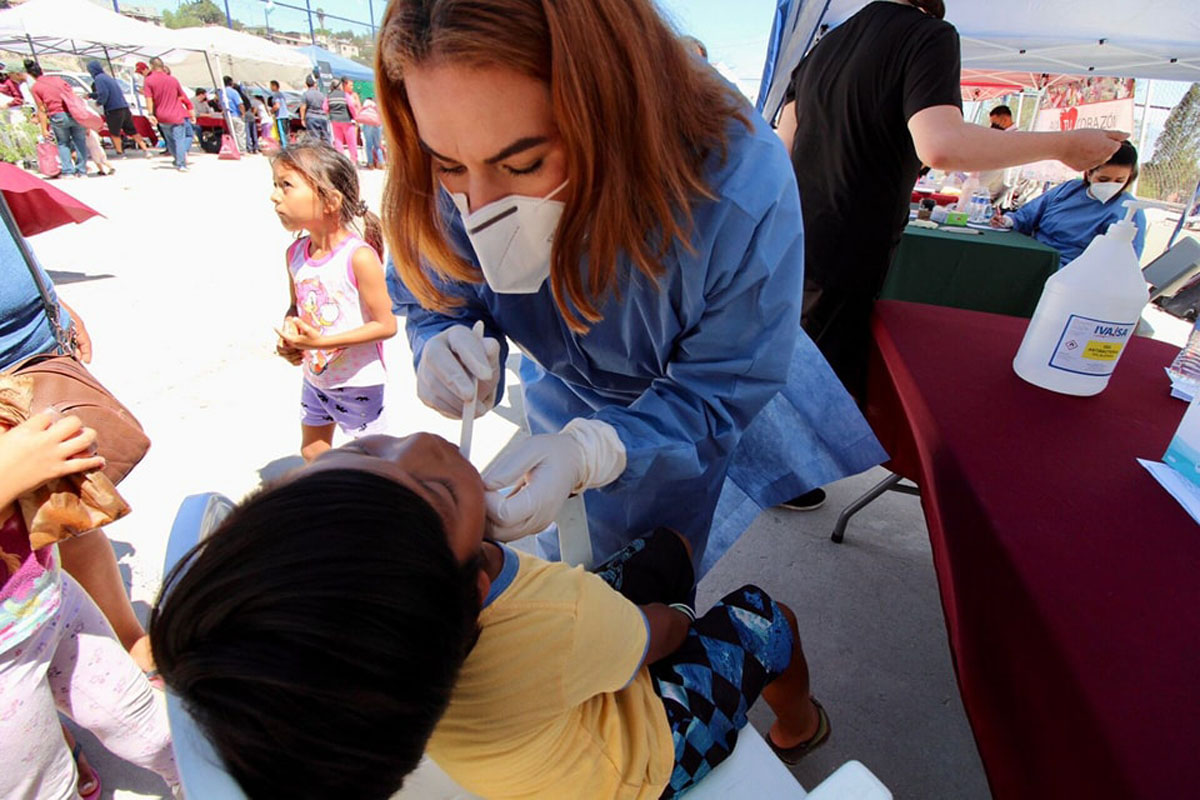MEXICO: Wheelchair Developed by Don Bosco Wheels Project Gives Youth With Disabilities Greater Mobility

(MissionNewswire) The Salesian-run Don Bosco Wheels project, operated out of Guadalajara, the capital and largest city of the Mexican state of Jalisco, unveiled a newly developed wheelchair that enables youth with physical disabilities greater mobility. By allowing for increased movement, the wheelchair results in greater inclusion and access and decreases the likelihood of sores that often result from sitting in one seat for long periods.
Started in 2010, the Don Bosco Wheels project, coordinated by Father James Reyes Retana, provides supportive services to youth with disabilities while working to ensure that their rights are respected. The project also offers educational opportunities and forges relationships between youth with disabilities and their peers.
“Educational and community inclusion for youth with physical disabilities has been a focus for Salesian missionaries in Mexico,” says Father Mark Hyde, executive director of Salesian Missions, the U.S. development arm of the Salesians of Don Bosco. “Missionaries help youth with disabilities access education and workforce development training and increase their sense of community and support among their peers.”
The Don Bosco Wheels project created a committee focused on technology for greater autonomy and health. This committee is developing the personalized wheelchairs that permit users to stand on their feet and move around more freely. With a simple push of a button, a mechanism on the wheelchairs allow the seats and backrests to rise to levels required by their users.
“There are many benefits for those who use these chairs,” says Aldo Alan Chavarria, one of the founders of the Don Bosco Wheels project. “It betters our circulation and helps in the calcification of the bones, while helping the digestive process. Not only that, it also contributes psychologically, as it permits one to stand at the same level as the others, like for example at a meeting. Besides, there are obvious advantages in one’s own house as if one wants to get something it is easier now to go and get it.”
The hope is to eventually make the chairs readily accessible to youth in the program as well as make them commercially available. While a similar wheelchair could cost up to $5,000 in the open market, the Don Bosco Wheels project wheelchairs are far more accessible costing less than $700 with the added mechanism included in the price.
UNICEF notes in its State of the World Children 2013: Children with Disabilities report that globally, close to 61 percent of boys finish school but for boys with disabilities that number drops to 51 percent. For girls, 53 percent finish school but among those living with a disability, only 42 percent finish their education.
The UNICEF report also notes that studies across countries show a strong link between poverty and disability, which in turn is linked to gender, health and employment issues. More than 46 percent of Mexico’s population lives in poverty, according to UNICEF. Close to 53 million people lack access to education, healthcare, transportation and even the most basic necessities such as food and shelter. The poverty rate for youth in the country is higher at more than 53 percent and accounts for 20 million children and adolescents, 5 million of which live in extreme poverty.
Salesian missionaries in Mexico primarily direct their efforts toward the country’s at-risk youth, including girls and young mothers. Creating safe havens and improving educational opportunities are considered essential to deter youth from life on the streets where they are susceptible to drugs and gang violence. The UNICEF report suggests that inclusion in mainstream schools and educational settings is usually most appropriate for children with disabilities and when teachers and personnel are trained to consider disability-related issues, they look upon inclusion of children with disabilities more positively.
“Youth living in poverty are among the least likely to have access to educational programs that provide the skills necessary to lead stable productive lives,” adds Fr. Hyde. “Children living in poverty with a disability are even less likely to attend school when compared to their peers. Salesian missionaries in Mexico are working to ensure that every child, no matter their situation, has access to education.”
###
Sources:
ANS – Mexico – “Don Bosco Sobre Ruedas” is on its feet with its new chair
UNICEF – State of the World Children 2013: Children with Disabilities
UNICEF – Mexico
Salesian Missions – Mexico




